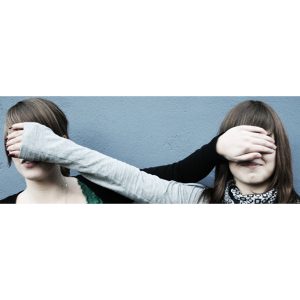 Results from a Sydney study show discrimination in public places is common for young people with disability. It is estimated that 12.6 per cent of young Australians aged 15-29 have a disability, and these young adults face disadvantages in many areas, such as education and financial institutions, however, the impact of interpersonal discrimination in public places is less understood. To address the knowledge gap in this area, the University of Sydney, together with the University of Melbourne, has been undertaking research funded by an Australian Research Council Discovery Grant investigating acts of inter-personal discrimination in public places towards young adults with disability aged 18-29 years.
Results from a Sydney study show discrimination in public places is common for young people with disability. It is estimated that 12.6 per cent of young Australians aged 15-29 have a disability, and these young adults face disadvantages in many areas, such as education and financial institutions, however, the impact of interpersonal discrimination in public places is less understood. To address the knowledge gap in this area, the University of Sydney, together with the University of Melbourne, has been undertaking research funded by an Australian Research Council Discovery Grant investigating acts of inter-personal discrimination in public places towards young adults with disability aged 18-29 years.
Preliminary results from this study highlight that young adults with disability are treated differently, unfairly and unjustly when using public places and this discrimination was a common and sometimes daily experience. In the Sydney study site, discriminatory attitudes when using public transport was commonly reported, Dr Jamee Newland from the project team told F2L. It was also reported when shopping, using disability allocated car spots, having a beer after university or work or walking down the street, Newland said.
“What we are finding is that there are narrow perceptions of disability from the general public and people in public positions, such as transport staff. These narrow perceptions appeared to be based on a lack of understanding that young people can have impairments that limit their functioning in daily life, an impact typically only attributed to older people. Also, that disability that was not visible to others was to be questioned when disclosed and that having a noticeable difference was to be treated with physical exclusion, negative comments and verbal abuse.
“As more data comes in the team will be looking at the results in a more in-depth fashion to further explore the intersectionality of a public place, discrimination type, impairment, gender and region. By May 2017, we will have a better understanding as to which public environments present the most difficulties, so that a specific policy can be developed to increase social and economic participation of these young adults, so that they may be able to undertake daily tasks, such as shopping and catching transport, without fear of discrimination and abuse. For example, it could be envisaged that training be developed and delivered to the public transport sector, as well as a wider community campaign about disability and the social impact discrimination has on people with disability,” he said.
As public transport was one of the most commonly reported environments in which discrimination occurred, these experiences were communicated to Dr Mehreen Faruqi, of the NSW Greens, during a consultation about NSW Public Transport, which Dr Faruqi subsequently presented to the NSW Parliament on September 22, 2016. https://www.parliament.nsw.gov.au/Hansard/Pages/HansardResult.aspx#/docid/HANSARD-1820781676-71052/HANSARD-1820781676-71083
The study is still looking to speak to young adults with disability from Melbourne, Newcastle and Taree, NSW. Those interested must have a disability, impairment or chronic health condition, be aged 18-29 years and want to discuss experiences of discrimination in a public place.
For more information and to participate in the project email: jamee.newland@sydney.edu.au or PH: 02 9351 9711.
